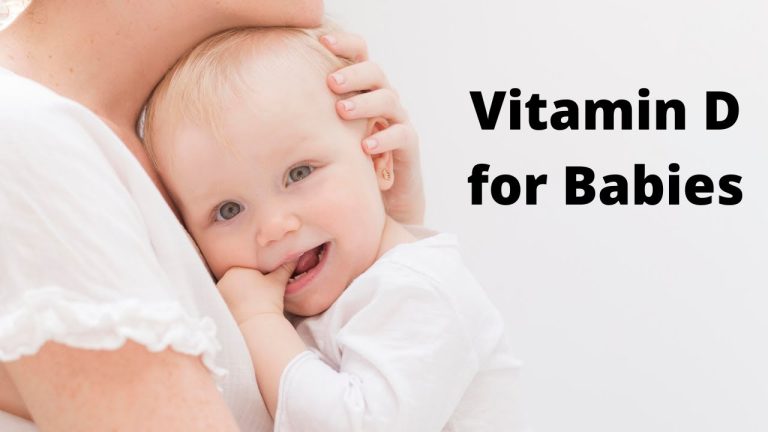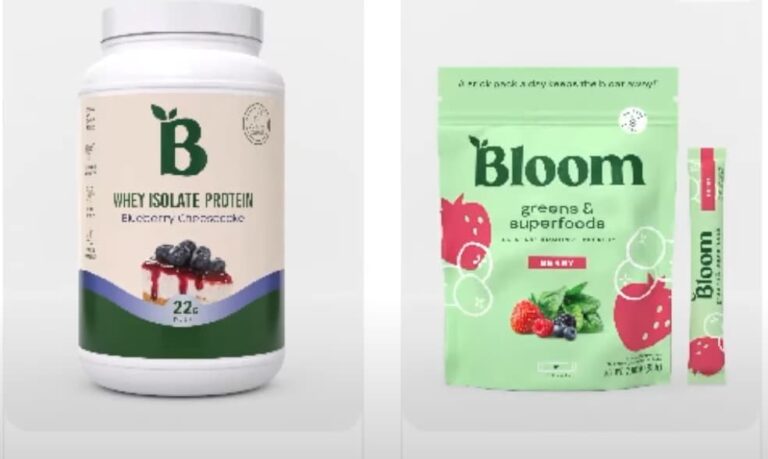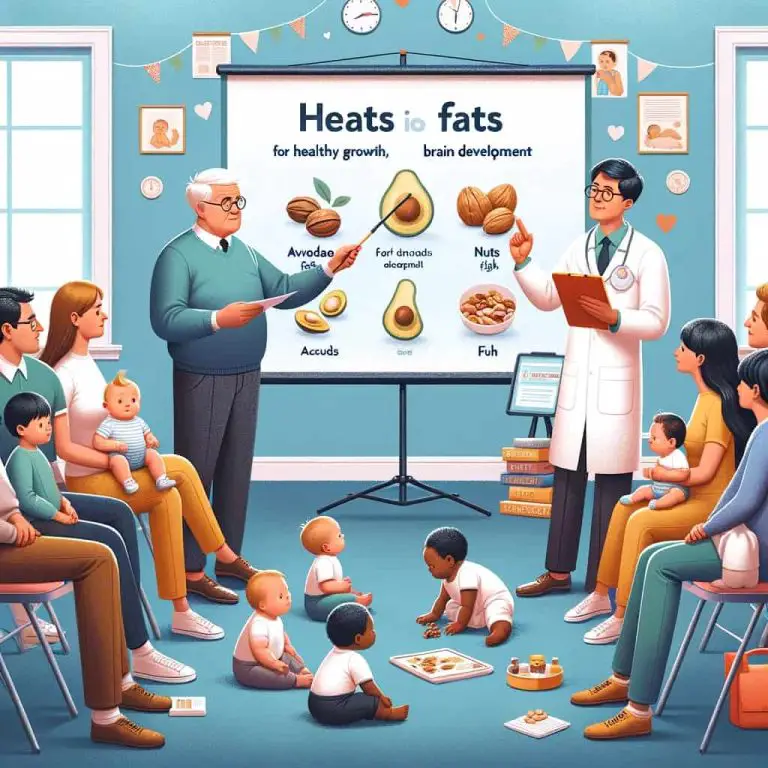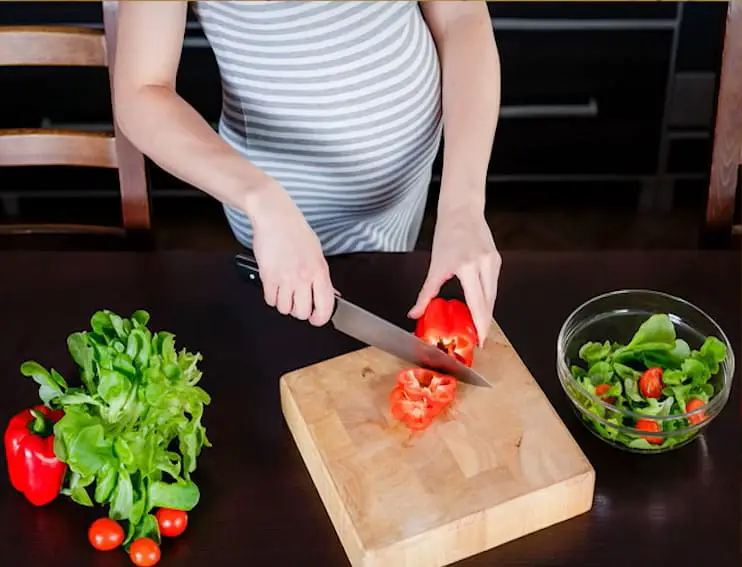Iron Rich Foods for Babies: Boost Your Child’s Health!
Iron rich foods for babies include pureed meats, fortified cereals, and legumes. Spinach, broccoli, and lentils are also excellent sources.
Ensuring your baby gets enough iron is crucial for their growth and cognitive development. Iron supports the production of healthy red blood cells, which carry oxygen throughout the body. During the first year of life, babies experience rapid growth, increasing their need for iron, often not sufficiently met by breast milk alone after the first six months.
Introducing iron-rich foods at about six months helps to meet these nutritional demands. Suitable iron-rich foods for your little one include pureed beef, chicken, turkey, and pork which are all high in heme iron, a form that’s easily absorbed. Meanwhile, iron-fortified baby cereals provide a good non-heme iron source, and pairing them with vitamin C-rich foods can enhance absorption. Beans, peas, and lentils are additional plant-based options packed with this vital nutrient, catering to vegetarian and vegan dietary needs.
The Importance Of Iron In Baby’s Diet
Iron is a critical nutrient in a baby’s diet, playing a pivotal role in their overall development and health. As little ones grow at a remarkable pace, especially in their first few years of life, having adequate iron levels is essential for fueling their rapid development. Iron acts as a building block for a baby’s brain development and is a crucial component of hemoglobin, which transports oxygen from the lungs to the rest of the body. Making sure your baby consumes iron-rich foods can support cognitive and physical growth and help prevent potential deficits that could impact their health.
Understanding The Role Of Iron In Infant Development
Iron is indispensable in the creation of hemoglobin, a protein in red blood cells responsible for carrying oxygen throughout the body. This process is vital for providing energy and supporting the brain and muscle function. During infancy, iron also supports neurological development and is vital for the proper growth of the baby’s brain and nervous system. Moreover, it plays a role in the healthy functioning of the immune system, helping babies fight off infections more effectively.
Risks And Symptoms Of Iron Deficiency In Babies
A lack of iron, known as iron deficiency, can lead to anemia, a condition characterized by fewer or smaller red blood cells than normal. This can result in reduced oxygen flow to the baby’s tissues and organs. Symptoms of iron deficiency anemia in babies may include:
- Pale skin and lips
- Uncharacteristic tiredness or weakness
- Slow weight gain and growth
- Poor appetite
- Irritability or fussiness
Be vigilant for these signs and consult a healthcare professional if they are observed. Early detection and treatment are crucial to prevent long-term developmental delays and other related health concerns.
Recommended Iron Intake For Babies
As parents and caregivers, understanding the specific nutritional needs of infants is vital for their growth and development. Perhaps one of the most important minerals to consider is iron. Iron plays a crucial role in producing hemoglobin, which is necessary for transporting oxygen throughout the body. Adequate iron intake is essential for brain development and the prevention of iron-deficiency anemia. Let’s delve into the age-specific guidelines for iron consumption and unpack the factors that affect how babies absorb this crucial nutrient.
Age-specific guidelines for iron consumption
Age-specific Guidelines For Iron Consumption
Iron requirements for infants vary by age. The following table breaks down the daily iron needs for babies at different stages of their first year:
| Age Range | Recommended Iron Intake |
| 0-6 months | 0.27 mg/day (typically met through breast milk or iron-fortified formula) |
| 7-12 months | 11 mg/day (introduced via iron-rich foods and continued breast milk or formula) |
For those considering exclusive breastfeeding, it’s important to note that breastfeeding infants may require supplemental iron from about 4 months of age, which can be discussed with a healthcare provider.
Factors Affecting Iron Absorption In Infants
Multiple factors can influence how effectively a baby absorbs iron. Two of the most significant are the source of iron and other dietary components.
- Heme iron, found in animal products, is generally more readily absorbed than non-heme iron from plant sources.
- Vitamin C enhances non-heme iron absorption when consumed in conjunction with iron-rich foods.
- Calcium and certain forms of fiber can inhibit iron absorption, so it’s crucial to balance these nutrients properly.
Additionally, some infants may have higher iron requirements due to premature birth or low birth weight. Always consult with a pediatrician to tailor iron supplementation to your baby’s needs.
Best Natural Sources Of Iron For Babies
Ensuring your baby gets enough iron is crucial for healthy growth and development. Iron plays a fundamental role in brain development and the function of red blood cells. From about six months old, a baby’s iron stores, built up while in the womb, begin to deplete. Therefore, introducing iron-rich foods into your infant’s diet becomes essential. This can be achieved through natural sources that not only fulfill the iron requirement but also provide a spectrum of nutrients beneficial for your little one’s overall health.
Babies need iron to grow and learn, making it a vital element during the first years of life. Certain foods are particularly rich in iron, and they come from both animal and plant-based sources. The best natural sources of iron for babies include:
- Meat: Red meats like beef and lamb are especially high in a type of iron that is easily absorbed by the body.
- Poultry: Chicken and turkey also provide a good source of easily absorbed iron.
- Seafood: Certain types of fish such as salmon can be an excellent iron-rich option for babies ready to try new textures.
- Veggies: Spinach, kale, and other leafy greens are packed with iron, but keep in mind that plant-based iron is not as easily absorbed as iron from animal products.
- Beans and lentils: These are good plant sources of iron and offer fiber and protein.
- Iron-fortified cereals: Many baby cereals come fortified with iron and can serve as a simple way to increase your baby’s iron intake.
Different forms of iron, such as heme iron found in animal products and non-heme iron found in plant-based foods, are absorbed at different rates. Babies can benefit from eating a mix of both types.
Adding iron-rich foods to your baby’s diet can be a fun and experimental process. Here are some tips to help with incorporating these essential nutrients:
- Start with pureed meats like chicken or beef, combining them with your baby’s favorite veggies.
- Gradually introduce cooked, pureed beans or lentils, which can also be mixed with other pureed foods.
- Offer soft-cooked pieces of vegetables like spinach or kale as finger foods, ensuring they are cooked down to prevent choking hazards.
- Make a batch of iron-fortified oatmeal or cereal, and serve it with mashed fruits for a sweet and nutritious meal.
A balanced diet is the best way to ensure your baby receives enough iron. Pair plant-based iron foods with those rich in vitamin C to enhance absorption. Furthermore, while introducing new foods, always watch for any allergic reactions or sensitivities.
Add additional rows as needed
| Day | Meal | Iron-Rich Foods |
| Monday | Breakfast | Iron-fortified cereal with mashed strawberries |
| Tuesday | Lunch | Pureed lentils with a side of cooked carrots |
| Wednesday | Dinner | Finely minced chicken with sweet potato mash |
Remember to consult with your pediatrician before making significant changes to your baby’s diet. It’s also important to cook foods to the appropriate textures to ensure safety and to follow age-appropriate feeding recommendations.
Purees And Baby-led Weaning: Iron-rich Recipes
Introducing solids to your baby is an exciting milestone. One key nutrient to focus on during this phase is iron, which is crucial for healthy brain development and overall growth. Purees and baby-led weaning offer parents versatile approaches to include iron-rich foods in their baby’s diet. The seamless integration of iron into homemade purees or finger foods can help meet your baby’s nutritional requirements. This section of our blog post will explore delicious and nutritious iron-rich recipes perfectly suited for your little one’s puree preferences or their adventurous baby-led weaning journey.
Homemade Puree Recipes Packed With Iron
Creating homemade purees not only allows complete control over the ingredients but also ensures that your baby gets the necessary iron intake. Start with these simple, nutrient-dense purees:
- Spinach and Sweet Potato Puree: Blend cooked spinach, a known iron powerhouse, with the natural sweetness of sweet potatoes.
- Beef and Broccoli Puree: Combine iron-rich beef with broccoli for a puree full of both iron and vitamin C, which aids iron absorption.
- Lentil and Carrot Puree: Lentils are a great vegetarian source of iron. Mixed with carrots, they make for a tasty and wholesome meal.
Each puree can be easily prepared by steaming or cooking the ingredients until tender, and then blending them to the desired consistency with a little breast milk, formula, or cooking liquid.
Baby-led Weaning Finger Foods Rich In Iron
Baby-led weaning encourages babies to explore and enjoy a variety of textures and tastes. Introduce these iron-rich finger foods to your baby to promote self-feeding:
| Food | Iron Content | Serving Ideas |
| Soft-cooked Meat Strips | High | Tender strips of chicken, beef, or turkey that the baby can easily grip and chew |
| Iron-fortified Baby Cereal | Varied | Finger-friendly cereal “O”s or small chunks that dissolve easily in the baby’s mouth |
| Cooked Egg Yolk | Medium | Mashed or crumbled egg yolk, fully cooked to avoid any potential allergens |
Remember to monitor your baby during meals to ensure safe swallowing and to reduce the risk of choking. These iron-rich foods will set the foundation for healthy eating habits and provide the nutrients necessary for your baby’s growth and development.
Iron-fortified Baby Cereals And Snacks
Introducing iron is crucial for a baby’s growth and cognitive development, especially from the age of 6 months when their natural iron stores start to deplete. Parents and caregivers must focus on incorporating iron-rich foods to ensure optimal childhood development. Among the most convenient options are Iron-Fortified Baby Cereals and Snacks, specifically designed to satisfy the increased nutritional requirements of growing infants.
Exploring Iron-fortified Baby Cereals
Iron-fortified baby cereals serve as a perfect starter food for infants transitioning to solid foods. These cereals are often made with rice, oatmeal, or multigrain mixtures that are gentle on a baby’s digestive system. A noteworthy feature of iron-fortified cereals is their easy preparation—just mix them with breast milk, formula, or water for a nourishing meal rich in iron.
- Essential iron to support brain development and prevent anemia.
- Vitamins and minerals enhancement for comprehensive nutrition.
- Single-grain options to monitor potential allergenic reactions.
- No added sugars or artificial flavors, promoting healthy eating habits.
Nutritious Iron-fortified Snack Options For Babies
Snacking plays a vital role in a baby’s diet as it provides additional opportunities to ingest valuable nutrients. Iron-fortified snacks offer a convenient way to boost iron intake between meals. Here are some nutrient-packed snack choices:
| Snack Type | Iron Content | Additional Benefits |
| Puffs | High in Iron | Dissolve easily, practice for fine motor skills |
| Yogurt Bites | Iron-fortified | Probiotics for gut health, calcium for bones |
| Cereal Bars | Good Source of Iron | Texture variety, whole grains for fiber |
Include a variety of these iron-rich snacks in your baby’s diet to ensure they receive a balance of nutrients. Always check labels for serving size recommendations and iron content per serving to monitor your baby’s intake. As with new foods, introduce them one at a time to watch for any adverse reactions.
Overcoming Iron Absorption Challenges
Overcoming Iron Absorption Challenges in babies is critical for their growth and development. While incorporating iron-rich foods into your infant’s diet is an important step, understanding and enhancing iron absorption is equally vital. Many parents may need to realize that it isn’t just about what babies eat, but also how their bodies process and utilize iron. This section explores the various factors that can influence iron absorption in infants and offers practical tips to ensure your baby gets the most out of iron-rich foods.
Factors That Affect Iron Absorption In Infants
Several key factors can impact how well a baby’s body can absorb iron. These include:
- Dietary Sources: Iron from animal sources, known as heme iron, is more easily absorbed than iron from plant sources, or non-heme iron.
- Presence of Vitamin C: Vitamin C significantly boosts iron absorption, especially non-heme iron from plant-based foods.
- Certain Dietary Components: Some substances, such as phytates, polyphenols, and calcium, can inhibit iron absorption if consumed in large amounts.
- Infant’s Age: Newborns have a higher iron absorption rate, which decreases as they get older.
- Iron Status: Babies with lower iron stores may absorb iron more efficiently than those with sufficient levels.
Tips For Enhancing Iron Absorption In Babies’ Diets
To maximize iron absorption from your baby’s meals, consider the following tips:
- Pair iron-rich foods with vitamin C-rich foods such as oranges, strawberries, or tomatoes to enhance absorption.
- Opt for iron-fortified infant cereals and formulas as they are designed for optimal absorption.
- Avoid serving foods high in calcium or foods containing phytates and polyphenols at the same time as iron-rich meals.
- Introduce meat purees, even in small amounts, as they are excellent sources of readily absorbable heme iron.
- For older infants, consider serving beans and lentils, which, when paired with a vitamin C source, can be a potent iron-rich meal.
The proper balance of foods and nutrition can significantly enhance iron absorption in your baby’s diet, supporting healthy growth and cognitive development.
Vegetarian And Vegan Iron Sources For Baby
Introducing vegetarian and vegan iron sources into your baby’s diet is a thoughtful strategy for ensuring they receive this essential nutrient for their growth and development. While meats and fish are commonly recognized as high in iron, vegetarian and vegan diets offer an abundance of iron-rich options as well. Parents must know which plant-based foods can fulfill an infant’s iron requirements effectively.
Vegetarian And Vegan-friendly Iron-rich Foods
Fueling your little one with the right kinds of iron-rich foods is important for their overall health. Thankfully, numerous plant-based options are both nourishing and iron-rich. Here’s a quick guide to incorporating these into your baby’s diet:
- Leafy greens: Spinach, kale, and Swiss chard are excellent sources of iron.
- Legumes: Lentils, chickpeas, and beans not only provide iron but are also packed with protein.
- Tofu and tempeh: These soy-based products are versatile and iron-dense.
- Whole grains: Quinoa, brown rice, and oatmeal are wholesome grains rich in iron.
- Nuts and seeds: Pumpkin seeds, almonds, and cashews are tasty iron-rich snacks suitable for older babies.
- Dried fruits: Prunes, raisins, and apricots offer a sweet iron boost. They should be served in a form suitable for babies to avoid choking hazards.
- Fortified foods: Many cereals and non-dairy milks are fortified with added iron.
Ensuring Optimal Iron Intake In Vegetarian And Vegan Diets For Babies
To maximize iron absorption from plant-based sources, it’s important to combine them with vitamin C-rich foods. Vitamin C enhances the body’s ability to absorb non-heme iron, the type of iron found in plants. Use these tips to optimize your baby’s iron absorption:
- Pair iron-rich meals with foods like oranges, strawberries, bell peppers, or tomatoes.
- Avoid giving tea or coffee to children, as these can inhibit iron absorption.
- Cooking in a cast-iron pan can also add trace amounts of iron to food.
- Offer a variety of iron-rich foods throughout the day to keep iron levels stable.
Remember, every child’s nutritional needs are different, and it’s essential to consult with a healthcare provider to ensure your baby’s dietary requirements are fully met, particularly if they follow a strict vegetarian or vegan diet.
Credit: kidseatincolor.com
Frequently Asked Questions For Iron-Rich Foods For Babies
What Are Top Iron-rich Foods For Infants?
Iron-rich foods for infants include pureed meats, fortified cereals, beans, lentils, and spinach.
How Does Iron Benefit A Baby’s Health?
Iron supports a baby’s growth, brain development, and immune function.
Can Babies Eat Iron Supplements?
Babies should not eat iron supplements unless prescribed by a pediatrician, as iron-rich foods are usually sufficient.
What Signs Indicate Iron Deficiency In Babies?
Signs of iron deficiency include tiredness, pale skin, and slow weight gain.
At What Age Should Babies Start Iron-rich Foods?
Babies can start iron-rich foods around six months old, alongside breast milk or formula.
Conclusion
Ensuring your baby receives enough iron is crucial for healthy development. Variety is key; incorporate a mix of the iron-rich foods discussed. Remember, always consult with a pediatrician before making dietary changes. For thriving, energetic little ones, a well-balanced diet makes a world of difference.
Include these nutritious options for a strong start in life.







